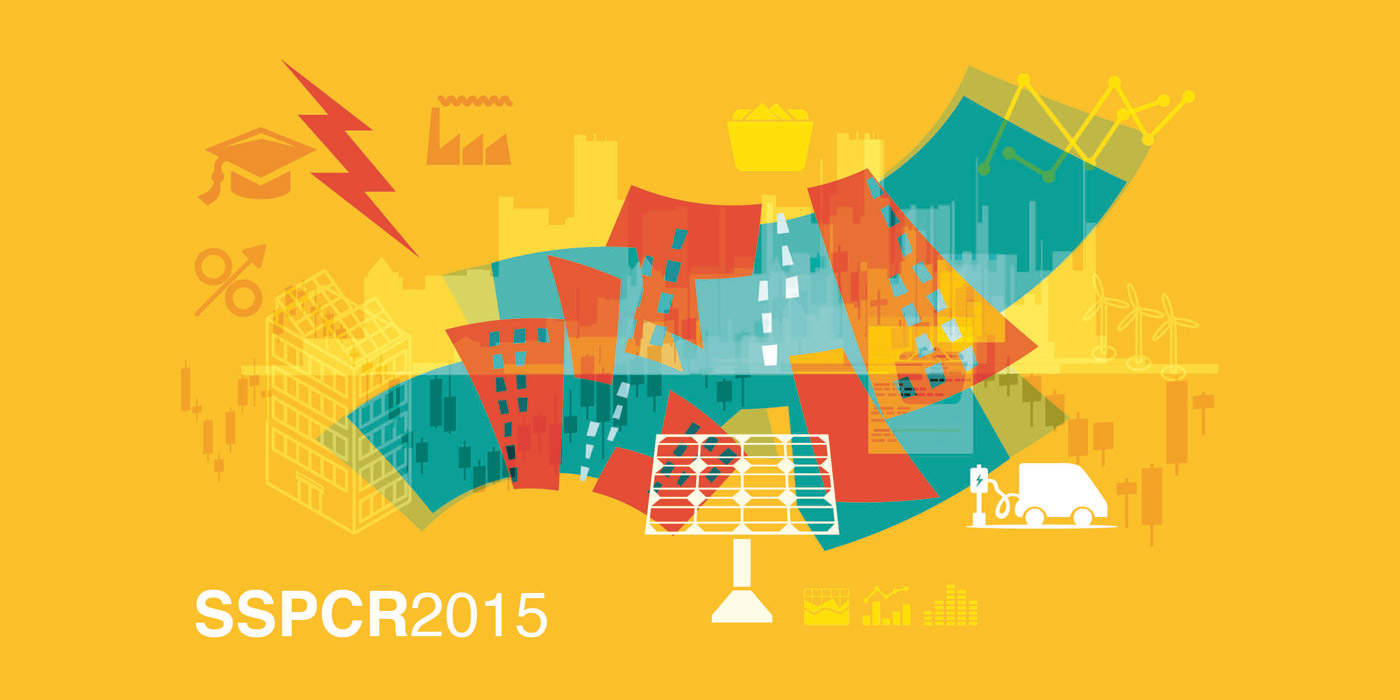
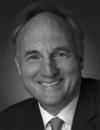
Peter Droege
Peter Droege is an international expert on advanced urban design, planning and renewable infrastructure development. Professor Droege holds the first Chair for Sustainable Spatial Development at the University of Liechtenstein, and a Conjoint Professorship at the University of Newcastle’s School of Architecture and Built Environment. The author of the leading reference The Renewable City: A Comprehensive Guide to an Urban Revolution (Wiley) has produced the seminal scholarly volumes “Intelligent Environments – Spatial Aspects of the Information Revolution” and “Urban Energy Transition – From Fossil Fuels to Renewable Power” (both Elsevier), and edited 100 Percent Renewable – Energy Autonomy in Action (Routledge), Climate Design (ORO) and Regenerative Region (oekom). He led the Solar City research program under the auspices of the International Energy Agency’s Implementing Agreement system of OECD-based research consortia within the Committee on Energy Research and Technology from 1999 until 2003. A Board Member, United Nations Habitat Global Research Network on Human Settlements until 2012, he also has served as Senior International Advisor, Beijing Institute for City Planning and Design, from 2004. Peter Droege served as expert reviewer for the Intergovernmental Panel on Climate Change’s Working Group (WG) III contribution to the IPCC Fifth Assessment Report.

Jürgen Breuste
Jürgen Breuste held a professorship for Geography/Urban Ecology at Paris-Lodron-University Salzburg, Austria (born 1956). He studied geography at Martin-Luther University Halle/Wittenberg from where he got his PhD 1982 and his second graduation 1986. He was university lecturer for geography, geo-ecology and urban ecology at the German universities in Halle, Greifswald, Dresden and Leipzig and headed of department Urban Landscape at the Environmental Research Centre Leipzig/Halle for 10 years before his actual position in 2001. There he is Honorary Professor of East China Normal University Shanghai, and Capital Normal University Beijing, China, member of several scientific boards and president of the International Society of Urban Ecology (SURE). He has worked al project leader in a number of research projects on urban ecology and urban development at EU level and in other international cooperation. He is specified in urban ecosystem research, nature protection and modelling of urban development by numerous publications.
THEMATIC SESSION 2 – SMART AND SUSTAINABLE TECHNOLOGIES

Mauro Annunziato
Mauro Annunziato is Director of the Smart Energy Division of the Energy Dept. of ENEA involved in the R&D of new technologies for smart cities, sustainable mobility, critical infrastructures, energy efficiency, smart buildings & homes, robotics, public lighting, ICT city platform.

Ric Stephens
Mr. Ric Stephens is an educator, consultant and civic advisor helping to create meaningful and memorable places in over 25 countries.
He is currently an adjunct instructor for Marylhurst University, Portland State University and the University of Oregon where he teaches courses in urban planning, international development, global business, urban resiliency and unmanned aircraft systems. He has taught at many other international universities and institutions such as the Gdansk University of Technology and Abu Dhabi Urban Planning Council. In 2016 he will become the new president of ISOCARP.
Stephens Planning & Design LLC, Mr. Stephens’ consultancy, is engaged in projects and programs in the U.S. Pacific Northwest and internationally in the following areas:
Planning
– Community Planning including project management, master planning, land use and development.
– Tourism Planning including resort and tourism development.
– International Planning including presentations, lectures, and advisory services.
Design
– Urban Design including spatial, site and landscape design.
– Regenerative Design including sustainable development and urban resiliency.
– Experiential Design including perceptual and psychological design with multi-media.
THEMATIC SESSION 3 – BENEFITS, COSTS AND OPPORTUNITIES OF URBAN TRANSITION

Ezio Micelli
Ezio Micelli is currently associate professor in real estate valuation at the University IUAV of Venice and he has been qualified as full professor in 2014. His research focuses on the economic feasibility of real estate projects and on the public/private partnership at the urban scale.
He published for national and international journals (Valori e valutazioni, Aestimum, Estimo e territorio, Urbanistica, Urbanistica Informazioni, Archivio di studi urbani e regionali, Scienze Regionali, Construction Management and Economics, Urban Studies, Etudes foncières, Espace et Sociétés).
Among the monographs and the edited books: La gestione dei piani urbanistici. Perequazione, accordi, incentivi, Marsilio, Venezia, 2011; Perequazione urbanistica. Pubblico e privato nella trasformazione della città, Marsilio, Venezia, 2007 (second edition); Le misure del piano, (edited with P. Lombardi), Angeli, Milano, 1999.
He has been appointed as urban planning town councillor of the Municipality of Venice (2010-2013). He has been member of the “Urban regeneration” team of the Italian Ministry of Infrastructures and Transportations charged with the guidelines of planning law and urban regeneration reform (2014).
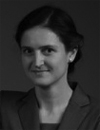
Nora Mzavanadze
Nora Mzavanadze is a research associate at the Center for Urban Resilience and Energy (CURE), the University of Manchester, UK. She is the principal researcher in the Horizon 2020 sponsored project “COMBI – Calculating and Operationalising the Multiple Benefits of Energy Efficiency in Europe”. The project aims to quantify and monetize the multiple non-energy benefits of energy efficiency in the EU-28 area. Nora is an economist and environmental scientists and is responsible for the assessment of air pollution and social welfare related co-benefits of energy efficiency in COMBI. Nora has been part of the Global Environment Outlook-5 (GEO-5) authors’ team and will be contributing to the GEO-6 report. Global Environment Outlook is the only mandated and scientific state of the environment report on a global scale commissioned by the world’s governments and led by the United Nations Environment Programme. In the past she has also worked for and collaborated with private consultancies, international organizations, research institutes, mass media, local and national governments.
THEMATIC SESSION 4 – GOVERNANCE FOR SMART AND SUSTAINABLE GROWTH
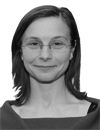
Ekaterina Domorenok
Ekaterina Domorenok is an associate professor of Political Science at the University of Padua, where she holds lectureships in European Public Policies and Governance of local development. Her research interests mainly concern the implementation of EU policies with particular focus on the issues of effectiveness, accountability and quality. She has been involved in several research projects on EU regional policies, multilevel governance, territorial development, environmental sustainability and climate change.

Pietro Elisei
Dr. Ing. Pietro Elisei is an international expert in town and regional planning. He provides services and consultancy in strategic planning, urban renewal/regeneration and regional development. From 2001 to 2010 he was Secretary General of Planum, the European Journal of Planning Online.Researcher for DipSU (Department of Urban Studies, Faculty of Architecture, Uniroma3) from 2002 to 2008, he has mainly been researching on design of urban policies (focusing on EU promoted urban initiatives) and tools for territorial/regional competitiveness and cohesion. In 2007, he moved to Romania working as international expert in integrated planning/urban regeneration for contracts promoted by the EU Commission and The Romanian Ministry for Housing and Regional Development. 2007-2009 President of U-Space-Romania. Since 2005 he has been member of the CORP (Vienna) scientific committee. In 2007 he was selected as 2007 – 2013 URBACT 2 EU validated expert (thematic expert) for Urban Regeneration. He has been confirmed URBACT expert for the period 2013-2020.
Among recent projects:
– Lead expert of the Urbact project TUTUR
– Thematic expert, as researcher of the University of Roma 2 Tor Vergata, of the Urbact project Re-Block
– Designer and content manager of the project STATUS
He is currently working as:
– Designer and manager of the Y-Plan Project
– Urbasofia coordinator for the smart cities projects i-scope, sunshine and i-locate
– Coordinator of the Strategic plan of Cluj-Napoca
He is the author of various articles/books on topics connected to urban regeneration, integrated and strategic planning, territorial cohesion, smart cities.
Currently ISOCARP Vice President for Marketing and Communication
He has been qualified in February 2014 professor by ASN (Italian national competition) in the sector 08/F1 (pianificazione e progettazione urbanistica e territoriale).
SPECIAL SESSION – COOPERATION AND DEMONSTRATION PROJECTS
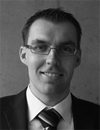
Wolfram Sparber
Wolfram Sparber is heading the Institute for Renewable Energy at EURAC researchsince it’s foundation in 2005.
He is involved in many international projects and member of several committees and councils. Since 2011 he is Vice President of the board of the European Technology Platform Renewable Heating and Cooling; in 2011 he was Member of a technical team of experts of the International Energy Agency for the elaboration of a global Technology Roadmap document.
Since November 2011 Wolfram Sparber took over the presidency of the board of SEL AG, a regional energy utility being active in the field of energy production, distribution, trading and services. In the recent years he was invited as Visiting Professor to different Universities. For example is he involved in teaching activities at the 2nd level Master CasaClima at the University of Bolzano, and was involved in the IMAT dual master program at the Retsuimekan Asia Pacific University in Beppu (Japan).
From 2002 to 2004 he joined the Department of Solar Cells, Materials and Technologies at Fraunhofer Institute for Solar Energy Systems where he was involved in projects for the introduction of surface treatment methods of silicon wafers in solar cell production lines.
Wolfram Sparber studied Applied Physics at Graz University of Technology (Austria) and Universitat Autonoma de Barcelona (Spain).
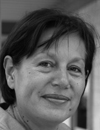
Milica Bajic Brkovic
Educated as an architect and planner in ex-Yugoslavia and USA, Milica Bajic- Brkovic has dedicated her professional life to the built environment. She has extensive professional experience as a university educator, researcher, university executive, editor, planning commissioner and planning practitioner.
Currently a Full Professor of Urban Planning and Design at the University of Belgrade, Serbia, she has also taught at other universities in her home country, Italy and the West Indies. A former BPTT Chair in Planning and Development at UWI, Fulbright Scholar at UC, Berkeley, Visiting Scholar at Rutgers University, Visiting Fellow at the University of Ancona and British Council Visitor at Oxford Brookes University, she has also lectured and delivered speeches in Switzerland, Austria, Germany, USA, China, Australia, UAE, etc.
Milica’s professional interest and experience relate to urban physical planning and development, sustainable development and design, spatial transformation of urban areas, new planning and design approaches with respect to theory and methodology, including the phenomenon of virtual cities and Internet based professional communication.
